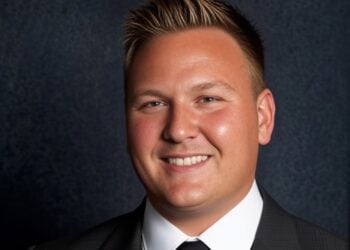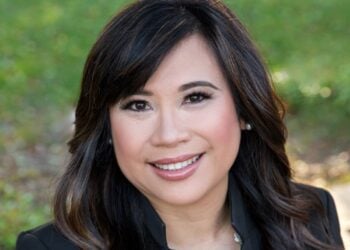 “When one of the spouses in a divorce owns a business, the attorneys for both sides and the court need to know the value of that business for the equitable distribution purposes of the spouses,” said David Amiss, a partner with the Raleigh-based public accounting firm, Carr Riggs & Ingram. He is a certified valuation analyst and a certified public accountant who assists family lawyers with business valuations in divorce settlement cases.
“When one of the spouses in a divorce owns a business, the attorneys for both sides and the court need to know the value of that business for the equitable distribution purposes of the spouses,” said David Amiss, a partner with the Raleigh-based public accounting firm, Carr Riggs & Ingram. He is a certified valuation analyst and a certified public accountant who assists family lawyers with business valuations in divorce settlement cases.
“The value, or fair market value to be more precise, is the price at which a business interest would change hands between a hypothetical willing buyer and seller, not under compulsion, with both parties having reasonable knowledge of all the facts,” explained Amiss.
An Excellent Foundation
Prior to focusing solely on valuation service offerings, Amiss spent 15 years as a certified public accountant providing tax and accounting services to small and mid-size businesses in a variety of industries. Amiss sometimes thought that he may have been better served had he started as a business valuator.
“However, upon further reflection, I always come back to the fact that those years of experience in tax and accounting provided an excellent foundation for business valuation. Those years helped me to understand businesses, their life cycles, what makes them tick, common errors, and where to look for or how to spot irregularities,” said Amiss.
Intersection of Practical and Technical Experience
Amiss recently did a valuation of a service company. A spouse who owned the business planned to operate it after the divorce. Amiss estimated the value at $300,000. An opposing business valuator estimated the value at over $1 million. “There were certain and clear elements of risk associated with this company that made the opposing value unreasonable. This foundation is part of what I relied on in that case and all cases.”
“My mentor in business valuations, Hank Crawford, always impressed upon me to ask if the value ‘makes sense’ or to ask myself if I would buy the business for the concluded value,” said Amiss adding that real-life experience provided by 15 years of experience as a CPA coupled with the business valuation technical concepts are essential to know if a value ‘makes sense.’ For the service company, with the clear risk factors, $1 million was unreasonable.”
Trusted Partner in Providing Services to Clients
Amiss was contacted recently about providing valuation services for a company interested in selling. “Upon a preliminary analysis of the tax returns, I quickly came to the determination that there was not much to sell outside of the value of the tangible assets,” said Amiss.
So, rather than providing a valuation and charging the full fees for a report that ultimately would not have had much use considering the low value, he went back to the client and had the hard conversation. “They did not need a valuation at that time. In reality, they should have sold five to 10 years ago. Instead, they needed strategies for improving profitability to get their company ready to sell,” he said.
Amiss has done valuations for equitable distribution for businesses ranging in value from $250,000 to $20 million. The companies have included retail stores, service providers, contractors, medical offices, and manufacturers.
“The value we provide to family law attorneys is to take away the uncertainty in the value assigned to the business and associated with the delivery of the project within the specified timeframe,” said Amiss.
David E. Amiss, CPA, CVA, received a Bachelor of Science degree in accounting from Valdosta State University in 2005 and a Masters of Accounting from Georgia Southern University in 2008. Amiss joined Carr Riggs & Ingram, P.L.L.C. (CPAs and Advisors) in 2014, where he serves as a partner responsible for providing business valuation and consulting services to clients. Before joining Carr Riggs & Ingram, P.L.L.C., he spent eight years at other public accounting firms focusing on tax and accounting services.








